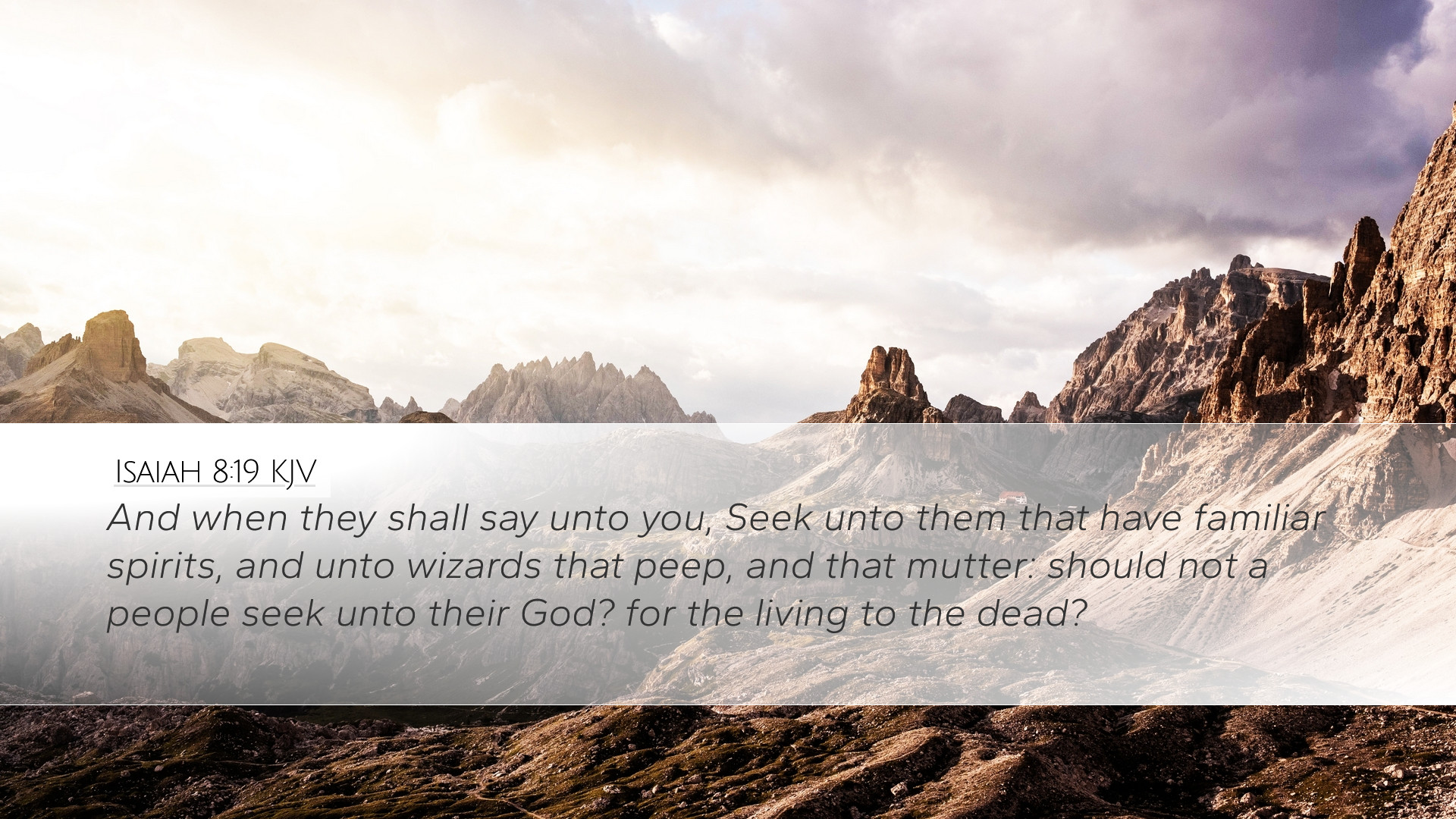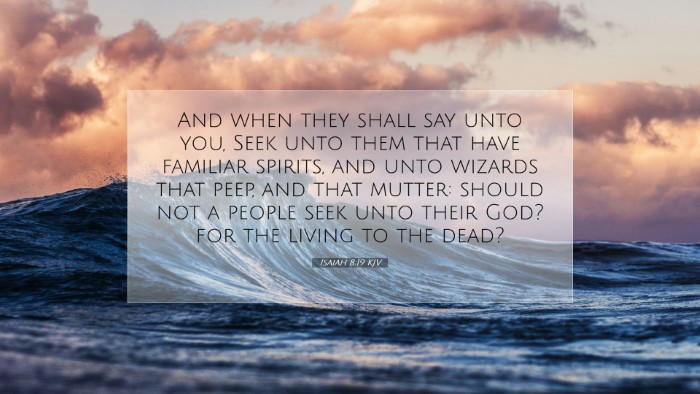Commentary on Isaiah 8:19
Isaiah 8:19 states: "And when they say to you, 'Seek those who are mediums and wizards, who whisper and mutter,' should not a people seek their God? Should they seek the dead on behalf of the living?" This verse provides profound insight into the nature of faith, the dangers of divination, and the appropriate approach to seeking divine wisdom.
Contextual Background
The context of Isaiah 8 is critical for understanding this verse. The nation of Judah is under threat from surrounding nations, and there is immense pressure on the people and leaders to seek guidance through forbidden means, like necromancy and consulting mediums. Isaiah serves as a prophet during this turbulent time, drawing the attention of the people back to reliance on God instead of these pagan practices.
Commentary Insights
1. The Dangers of Seeking Other Sources of Guidance
Matthew Henry emphasizes the danger of turning to mediums and spiritualists as a substitute for seeking God. He points out that such practices stem from a lack of faith and indicate a turning away from the true source of wisdom. Seeking the dead on behalf of the living is profoundly misguided, as it prioritizes human understanding and the occult over divine revelation.
2. Dualism of Seeking
Albert Barnes notes that the term 'seek' reflects an intentional search for answers that ought to be directed towards God. The rhetorical nature of the question imposes upon the people a choice: pursue the ephemeral and forbidden or submit to divine guidance. This line of inquiry serves to contrast the temporary satisfaction and unholy wisdom found in divination against the eternal truths and divine wisdom found in a relationship with God.
3. The Nature of God as the Ultimate Source
Continuing the discussion, Adam Clarke points out the futility of consulting mediums when the living God is available and willing to lead His people. He emphasizes the relationship aspect of seeking God—not only as a resource but also as a sustainer and guide. Isaiah implores the people to recognize that their greatest asset in times of distress and uncertainty is their connection with God, rather than reliance on occult practices.
Spiritual Application
The message of Isaiah 8:19 is strikingly relevant for modern believers who face pressures to seek guidance in various forms that stray from biblical teaching. Through mediums, horoscopes, and other spiritualistic practices, people often seek comfort or clarity that they believe can only come from supernatural sources. The verse reminds us of the ultimate deception: that true wisdom, comfort, and insight can only be found in God.
Faith over Fear
Believers are called to trust God's sovereignty, even when circumstances feel overwhelming. Instead of being swayed by fear or societal trends, they are encouraged to turn to prayer, Scripture, and godly counsel. This requires a deliberate act of faith—seeking God's presence earnestly rather than shortcuts or human solutions.
The High Cost of Divination
This verse raises an important ethical question regarding the practice of divination. The consequences of abandoning God for alternative sources can lead to spiritual depletion and disorientation. The products of such practices often lead individuals away from the truth and into darkness, which ultimately hinders their spiritual growth and understanding.
Conclusion
Isaiah 8:19 is a call to recognize the profound absurdity of seeking guidance from the dead when the living God stands ready to advise and protect His people. Matthew Henry, Albert Barnes, and Adam Clarke each illuminate the critical importance of faithfulness to God in times of uncertainty. Pastors, students, and theologians alike are encouraged to reflect on where they seek wisdom and to reaffirm their commitment to seeking the living God as the true source of guidance and light.


